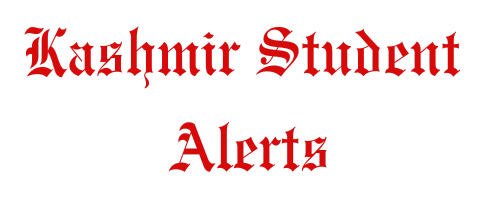J&K admin frames ‘Draft Policy’ for upgradation of school curriculum
Policy entails higher, technical education in line with emerging technologies, current requirements
Riyaz Bhat
Srinagar, Dec 29 (KNO): Authorities in Jammu and Kashmir have framed a ‘Draft Policy’ wherein it has suggested upgradation of curriculum for school, higher and technical education in line with emerging technologies and current requirements.
The ‘draft policy’ accessed by the news agency—Kashmir News Observer (KNO) reads, “School, Higher and Technical Education Institutions will be advised to update the course curriculum to be in line with the emerging technologies and current requirements of the industry.”
It also said that new courses will be introduced for entrepreneurship development. “Efforts will be made to engage Industry experts to teach specialized elective courses at Higher and Technical Education Institutions as part of the degree courses being offered by the respective institutions.”
The policy further says that the School, Higher and Technical Education Institutions will be asked to adopt new pedagogic interventions and technology-based course delivery tools to bring the educational ecosystem of Jammu and Kashmir at par with the global standards.
About the infrastructure up-gradation, the policy states that the authorities have suggested that a special scheme of facility up-gradation shall be introduced.
“The Government would support enhancing infrastructure at existing schools, colleges, Technical Education Institutions and universities to deliver the curriculum and conduct the activities as per global best practices in pedagogy,” it reads.
Similarly, about the faculty support, the documents said that in order to encourage commercialization of research taking place in academic labs and support the faculty in their entrepreneurial journey, a two-year startup sabbatical for faculty of colleges, technical education institutions and universities shall be introduced.
“The faculty will also be encouraged to get involved with and encourage startups in form of mentoring, guidance or consultancy in lieu of minority stake of not more than 2 percent or executive membership in the advisory board of the startup,” it reads— (KNO)





